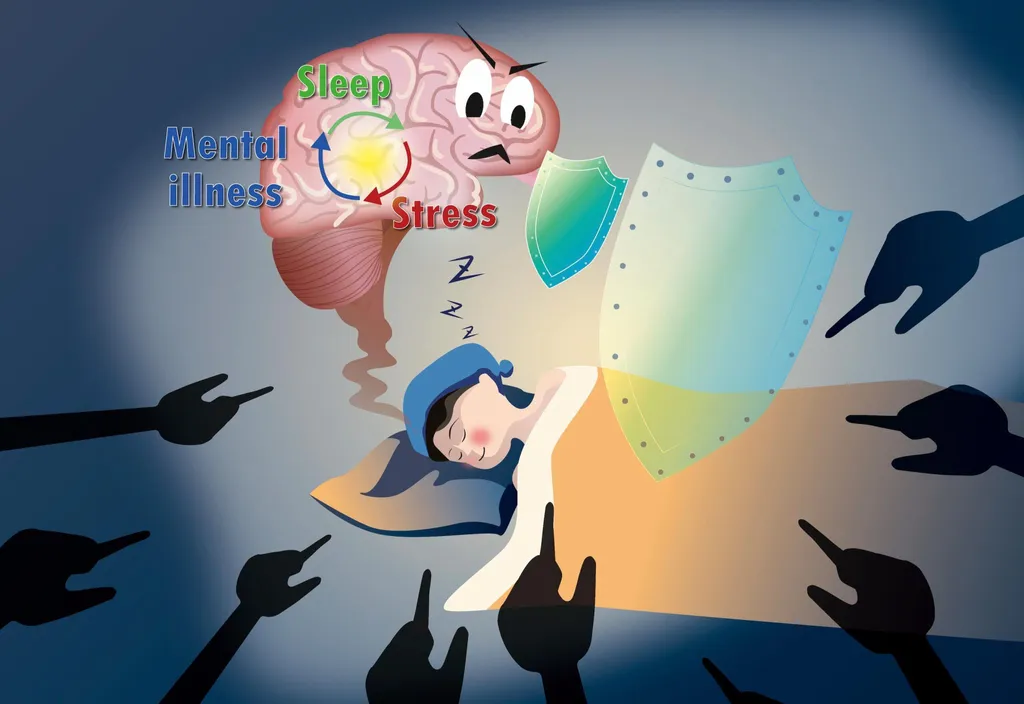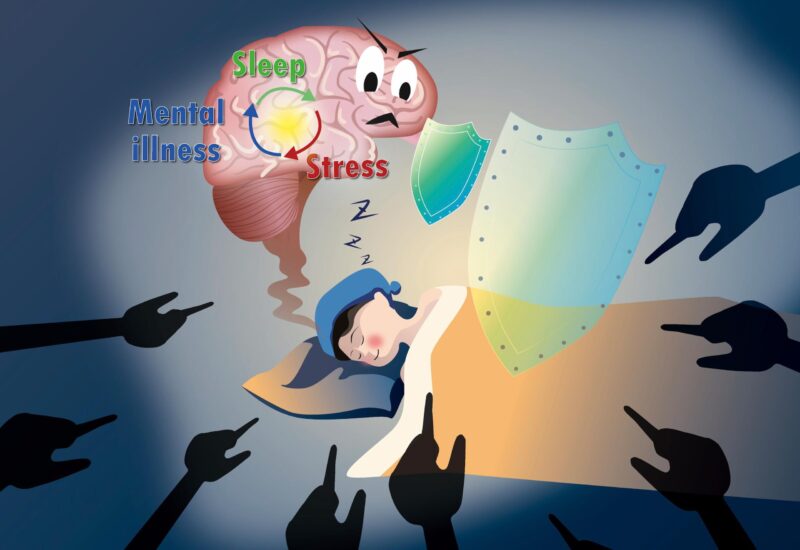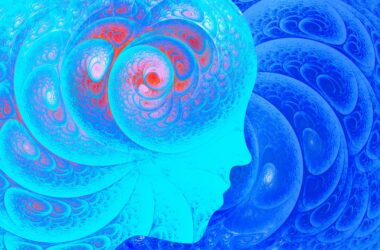
Des circuits dans le cerveau peuvent induire un sommeil réparateur qui protège contre l’anxiété ultérieure. Crédit : Imperial College London
Le stress stimule un type de sommeil qui soulage ensuite l’anxiété, selon une nouvelle étude menée sur des souris qui met également en évidence le mécanisme responsable.
Comme le sommeil est similaire chez tous les mammifères, il est probable que le même mécanisme découvert dans cette recherche sur les souris se déclenche dans le cerveau humain. La découverte de ce mécanisme pourrait conduire à la mise au point de moyens artificiels permettant de renforcer ses effets, ce qui aiderait à traiter les troubles persistants liés au stress, tels que le syndrome de stress post-traumatique.
Nous pensons souvent que le stress nous empêche de dormir la nuit, mais certains types de stress semblent en fait induire le sommeil. Une nouvelle étude a permis de découvrir comment cela se produit dans le cerveau des souris. L’étude a été menée par des chercheurs de Imperial College London and institutions in China.
As well as discovering how sleep is induced, they reported that the sleep experienced by the mice appears to lower their anxiety levels the next day. The findings are reported today (June 30, 2022) in the journal Science.
Humans and all animals experience two main types of sleep: REM (rapid eye movement, where we tend to dream), and non-REM (NREM; deeper, dreamless sleep). People who suffer from PTSD experience less REM sleep, contributing to the theory that REM sleep helps us process difficult emotions and stress.
Lead researcher Professor Bill Wisden, from the Department of Life Sciences at Imperial College London, said: “Our results add weight to the idea that REM sleep helps us cope with stress. However, we previously only knew about ways REM sleep is reduced, such as some drugs that suppress it.
“Now, our study has revealed a mechanism by which REM sleep is induced, paving the way for drugs or other interventions that target the right neurons and boost the stress-busting power of sleep.”
The researchers caused a type of psycho-social stress in mice called ‘social defeat’, which is used as an analog for human bullying. Mice were exposed to particularly aggressive mice (without physical harm), after which researchers noted that ‘flight or fight’ hormones rose in their blood, indicating stress.
When the mice then slept, researchers tracked the activity of their neurons (brain cells). This revealed a specific set of neurons that detected and responded to the stress hormone levels and induced sleep high in both NREM and REM.
The activity of these neurons, and levels of NREM and REM sleep, stayed high for around five hours of sleep, during which they also sent signals to other neurons that regulate stress hormones, blocking them from releasing more.
The newly discovered neurons thus not only detected stress and induced sleep as a result, they also triggered the lowering of stress hormones.
Once the mice awoke, the researchers tested their anxiety response, to see how the sleep had affected their stress behaviors. They did this by measuring how long the mice spent in the light, rather than seeking out darkness, as they tend to do more when they are anxious.
Their responses were compared to stressed mice that were either sleep deprived (stimulated with objects) or had their newly identified neurons impaired, meaning they didn’t get the restorative sleep normal mice did.
The mice that didn’t get their stress-induced sleep spent much more time in the dark, indicating they were more anxious, and their stress hormone levels remained high.
Having found this new mechanism, the team now hopes to find ways to selectively target the responsible neurons to boost their positive effects via sleep.
The team was funded by the Wellcome Trust and the UK Dementia Research Institute. A dementia diagnosis can cause significant psychological stress, and the team hopes that if their research can lead to a way to boost the effects of sleep, this will also help people cope with a new diagnosis. People living with dementia also suffer from more emotional disturbances, and boosting REM sleep may also help reduce this distress.
Reference: “A specific circuit in the midbrain detects stress and induces restorative sleep” 30 June 2022, Science.
DOI: 10.1126/science.abn0853



